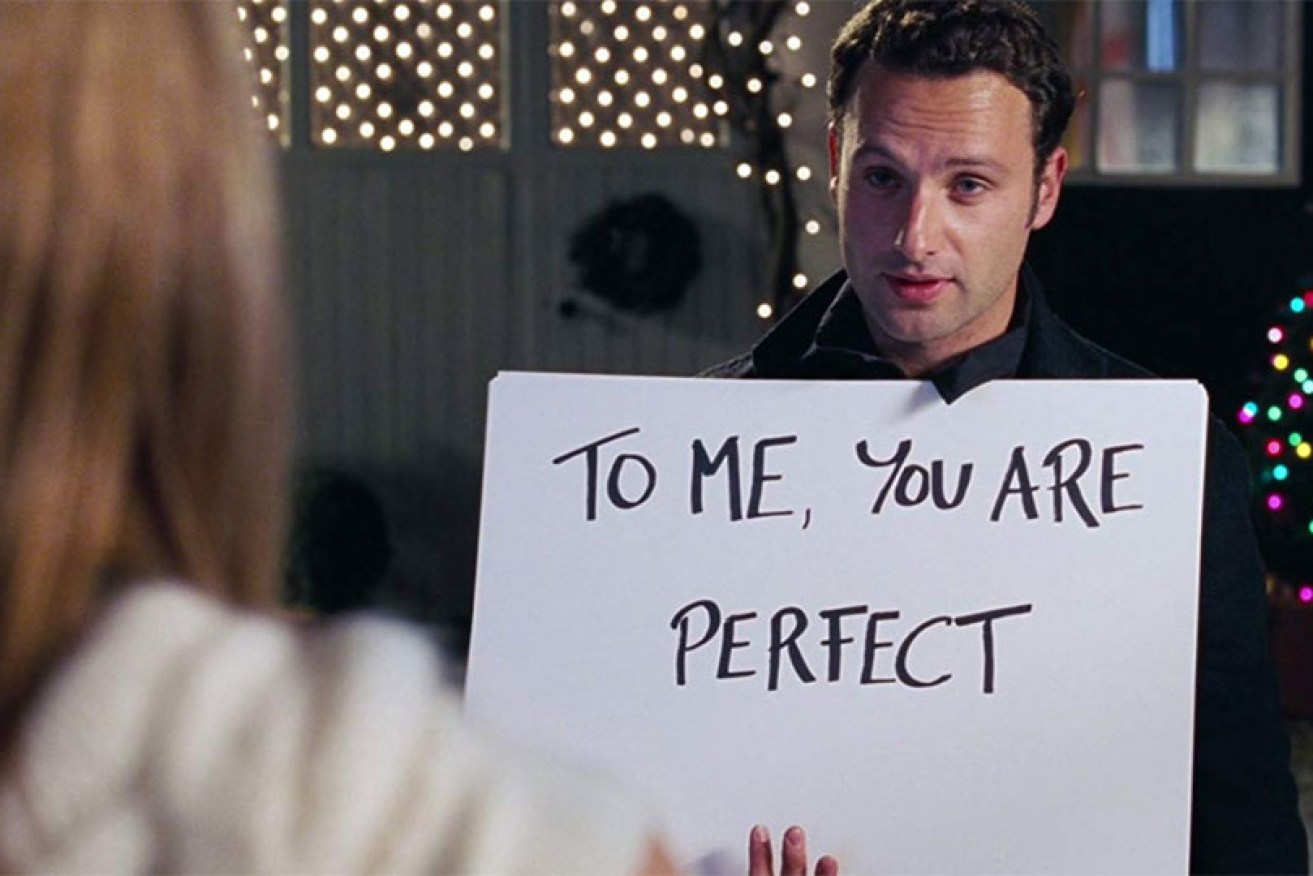Love, Actually and whether we can actually love it


Andrew Lincoln (wooing Keira Knightley) penned the Love, Actuallysigns himself as he liked his handwriting. Photo: Universal Pictures
On Tuesday, British Prime Minister Boris Johnson treated journalists and satirists alike to an early Christmas present with some fresh material recycled from Love, Actually.
For a campaign video, the politician made the unusual decision to re-enact the infamous doorstep scene between Mark (Andrew Lincoln) and Juliet (Keira Knightley) in Richard Curtis’s 2003 Christmas classic.
I thought I’d stumbled over a spoof video but the “Vote Conservative, actually” homage is 100 per cent real.
It has been picked apart by political pundits and Twitter, but it’s also reignited debate around whether Curtis’s much-loved festive flick is worthy of our adoration.
I do remember being somewhat charmed by Love, Actually the first time I saw it – or at least, I didn’t rush to the streets (or forums) in protest.
Maybe I’d become resigned to my fate after too much Christmas ham or perhaps my judgment was a little clouded after that second cup of eggnog.
The after-glow didn’t last long, however, and by my second viewing the film had definitely soured.
Let’s take Mark’s hand-written address. For presumably the duration of his best friend Peter’s relationship with Juliet, Mark is a jerk to Juliet.
But because she loves Peter (Chiwetel Ejiofor) and Mark is his best friend, she puts up with it.
Juliet – played by Knightley when she was still 17, which is also a bit off-putting – later discovers that rather than video the couple’s wedding, Mark actually took close-up zooms of her face. Riiiiight …

Behind you: Knightley starts to realise she has a low-key stalker. Photo: Universal Pictures
He decides to put his own desire before his friend’s marriage and shows up at Juliet’s house on Christmas Eve with a ghetto blaster and placard signs.
In a series of hand-written notes (one including cut-out magazine images of Kylie Minogue and fashion models), he confesses his “love” for her while Juliet silently listens in the doorframe.
He walks off into the snow, she kisses him, and, in a gesture I think Curtis intends to be “honourable”, he says “Enough now”.
So, the woman is at first silent but complicit, then when she shows some reaction is rejected. It’s weird. It’s uncomfortable. It hasn’t stood the test of time.

Put it away, mate. Photo: Universal Pictures
When developing the scene, Curtis ran a few ideas by female co-workers to work out what was ‘romantic’ and what was ‘off-putting’, he told Elle.
If this one made the cut, I don’t like to think what’s on the cutting floor.
The scene isn’t just creepy, it’s dangerous.
In her wonderfully titled 2013 “I Rewatched Love, Actually and Am Here to Ruin It for All of You” feminist Lindy West addressed the filmmaker directly.
“Thank you for telling a generation of men that their intrusiveness and obsessions are ‘romantic’, and that women are secretly flattered no matter what their body language says,” she said.
Her article defines the movie’s central moral lesson as ”the less a woman talks, the more lovable she is”.
It’s a fabulously sweary review with West ultimately describing the famous scene as the “artistic low point of the 21st century”.
While Love, Actually is a perennial on ‘Best Of’ lists for Christmas and rom-com fans, it’s also fallen prey to the ravages of time – or more precisely, been scrutinised more closely with each repeat viewing.
Even Lincoln has changed his mind.
Six years ago, he called the scene “beautiful” and “marvellous” but by 2017 confessed to EW, “I kept saying to Richard [Curtis], ‘Are you sure I’m not going to come off as a creepy stalker?’”
Curtis had hindsight doubts: “Retroactively, I’m aware that Andrew’s role was on the edge.”
How can we actually love Love, Actually?
To wilfully misquote creepy Mark, to me, it’s imperfect.








